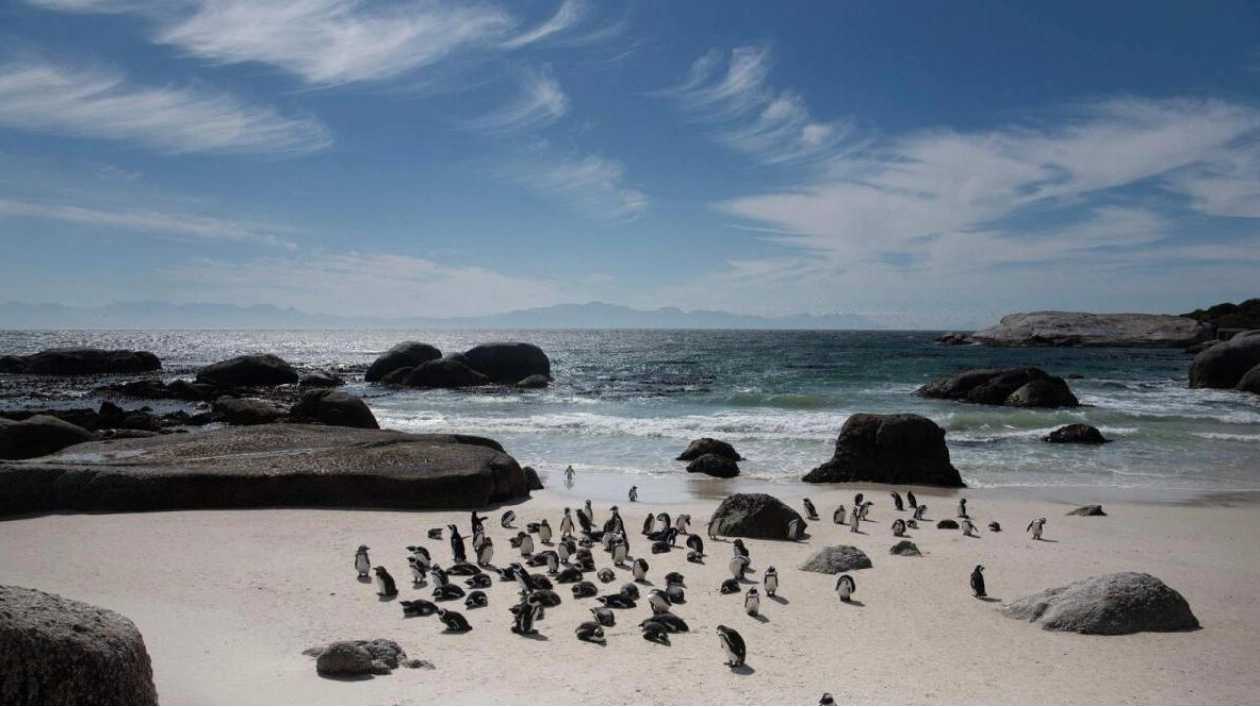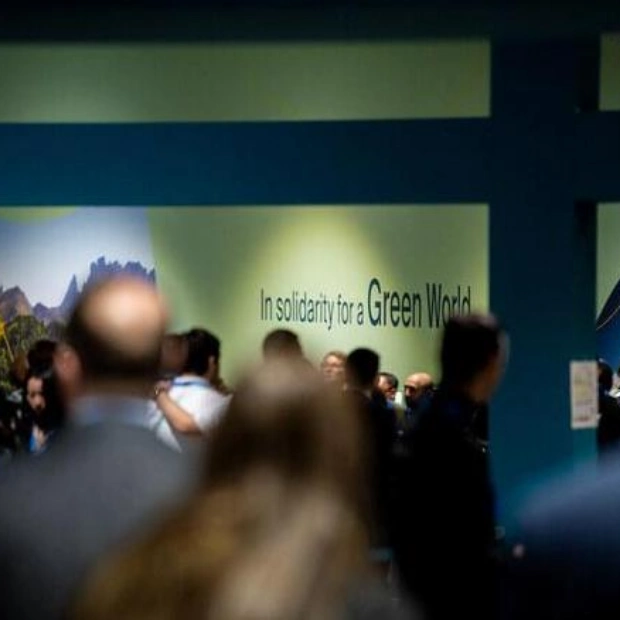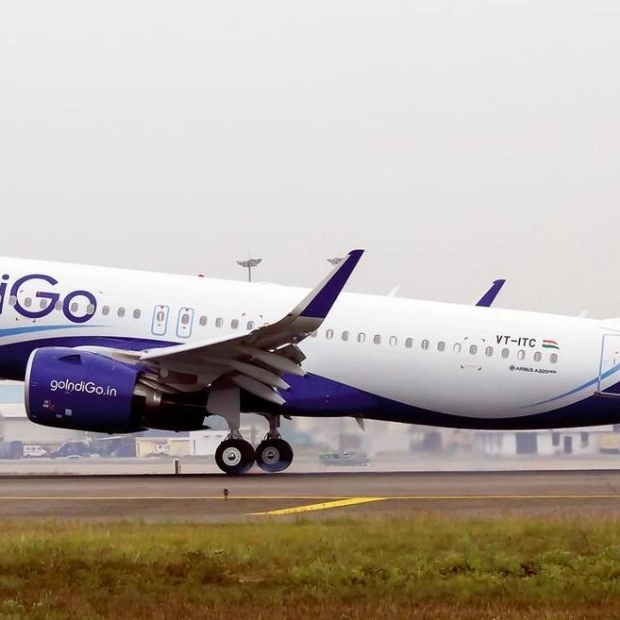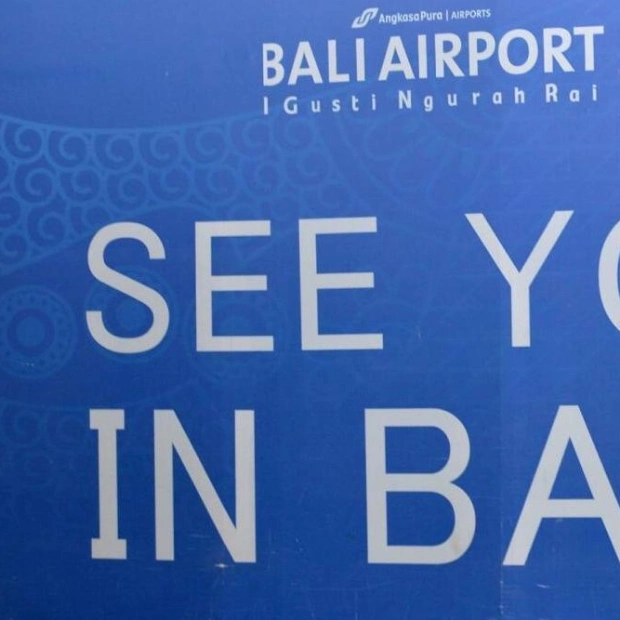African Penguins were observed resting on the beach at the Boulders penguin colony, a renowned tourist spot in Simon's Town, near Cape Town, on November 1 this year. AFP
Mashudu Mashau, a ranger, reveals that it takes approximately two minutes to capture a penguin, a routine task he performs weekly to investigate reports of injured or ill seabirds. 'We don't rush... we approach slowly, sometimes crawling to avoid appearing threatening, and when we're close, we aim for the head, hold it, and secure the penguin,' the 41-year-old ranger explained to AFP. Occasionally, when penguins venture from South Africa's coastline onto nearby streets and hide beneath cars, the task becomes more challenging. 'We had one today. They're not easy to catch because they dart from one side of the car to the other, but we managed,' said Mashau, who has dedicated the past eight years to safeguarding the species.
Once captured and carefully placed in a cardboard box, these small feathered creatures are transported to a specialized hospital for treatment. However, conservationists and veterinarians fear their efforts may not be enough to halt the decline of the African Penguin, which was recently classified as critically endangered by the International Union for Conservation of Nature (IUCN). 'No matter how much we do, if there isn't a healthy environment for them, our work is futile,' said veterinarian David Roberts, who works at the Southern African Foundation for the Conservation of Coastal Birds (SANCCOB) hospital. According to BirdLife NGO, fewer than 10,000 breeding pairs remain globally, primarily in South Africa, a significant drop from 42,500 in 1991, and they could face extinction in the wild by 2035. The dwindling numbers are attributed to various factors including food scarcity, climate change, disturbances, predators, diseases, oil spills, and more. However, the most significant threat is nutritional deficiency, according to marine biologist Allison Kock with the South African National Parks. 'So many of the penguins are starving and are not getting enough food to breed successfully,' she told AFP. When penguins do not consume enough, preferably sardines or anchovies, they tend to abandon breeding.
Authorities have implemented a commercial fishing ban around six penguin colonies for a decade starting in January. Yet, SANCCOB and BirdLife argue that the no-fishing zones are insufficiently extensive to make a substantial impact and have taken legal action against the environment minister over the matter. 'Ideally, we would want more fish in the ocean, but we cannot control that. What we can ask for is to limit direct competition for the remaining fish between industrial fisheries and the penguins,' SANCCOB research manager Katta Ludynia told AFP. The South African Pelagic Fishing Industry Association maintains that the fishing industry's impact on penguin food sources is minimal. 'There are clearly other factors that significantly negatively impact the population of the African Penguin,' said chairperson Mike Copeland. The environment ministry has proposed forming a discussion group 'to resolve the complex issues', according to a spokesperson. While a court hearing is scheduled for March 2025, the newly appointed minister has called for an out-of-court settlement.
In addition to the no-fishing zones, various initiatives are underway to save the African Penguin, including artificial nests and new colonies. Being labeled 'critically endangered' can be a double-edged sword. While conservationists hope to attract attention and funding, it also makes penguins more appealing to tourists who sometimes disturb them. 'Penguins are very susceptible... and the level of disturbance, people with selfie sticks, it's becoming more and more of a challenge,' said Arne Purves, coastal conservation and compliance officer for Cape Town. 'Especially as the penguins are now even more high-profile.' Tourism is crucial for South Africa, and each year thousands of visitors flock to the penguin colonies, generating millions of dollars in revenue. For those on the frontlines, like Mashau, the increased attention is long overdue. 'In the last five years, it was the rhinos... we hope we'll get the same respect now and the same assistance,' he said. It's also about protecting the environment. 'This is a species that is an indicator of a healthy ecosystem that humans are also part of... and the healthier the penguins, the more humans also benefit,' he added.
Source link: https://www.khaleejtimes.com






